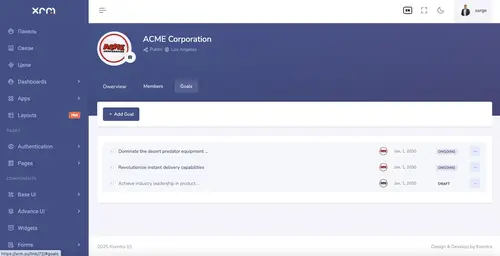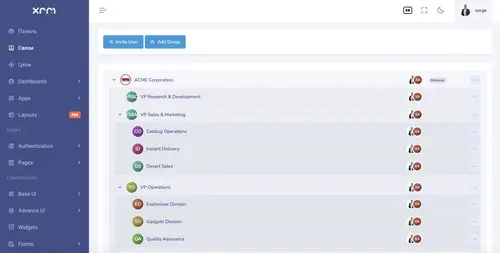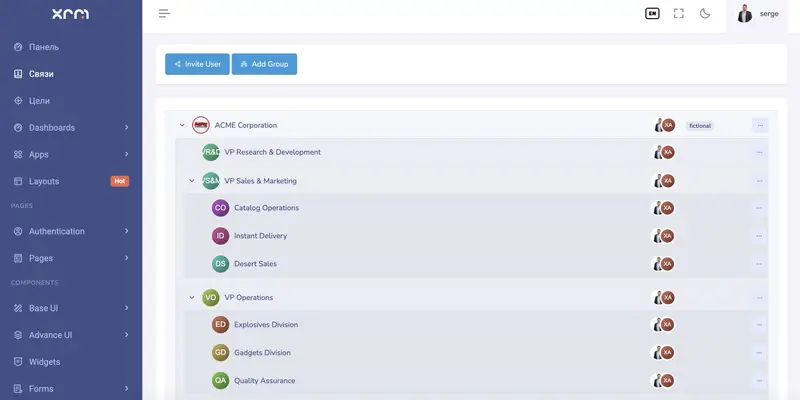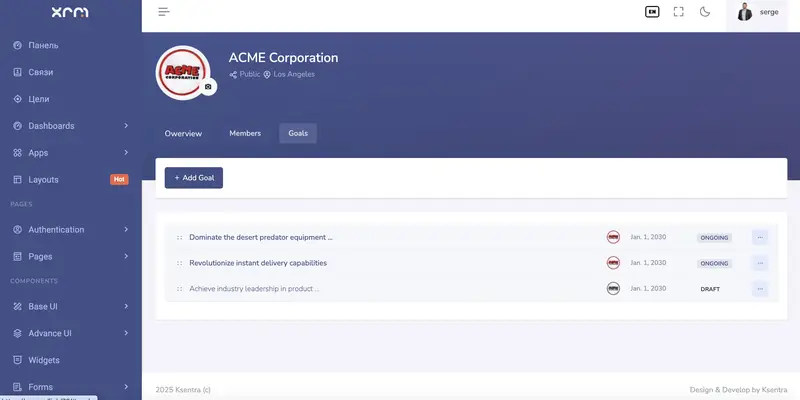The Smarter Way to Lead Teams to Success
XRM empowers leaders to set crystal-clear objectives and coordinate high-performing teams that deliver results


Advantages
Simple
Keep it simple
Prioritized
Important first
Tree view
Decompose complex issues into set of simple ones
Objectives
Prioritized goals
Organizing objectives in a prioritized tree view transforms complex projects into manageable hierarchical structures that enhance clarity, decision-making, and team coordination. This visual framework breaks down large goals into smaller, actionable tasks while establishing clear relationships between different levels of objectives. The tree structure enables teams to maintain strategic focus, allocate resources efficiently, and track progress at multiple organizational levels simultaneously. By displaying priorities visually, this approach reduces confusion about dependencies and ensures that all team members understand how their individual contributions connect to broader organizational goals.
Visual clarity
Cascading alignment
Iterative planning


Org chart
Hierarchy
Organizational charts offer clear visual representation of a company's structure, which helps employees understand their roles and reporting relationships quickly. Departments and project teams can be assigned specific goals along with individual profiles, which simplifies and clarifies the process of goal management.
Natural alignment of the goal hierarchy with the organizational structure
Role-based access control
Flexibility of forming temporary project teams
FAQ
If you can not find answer to your question in our FAQ, you can always contact us or email us.
General Questions
XRM is an acronym for Extended Relationship Management (also known as "Anything Relationship Management"). It's a comprehensive system that extends beyond traditional CRM (Customer Relationship Management) to include SRM (Supplier Relationship Management) and HRM (Human Resource Management), managing relationships with customers, suppliers, employees, and all stakeholders.
The core philosophy behind our XRM system recognizes that we maintain connections with various people who may serve multiple roles in our lives. These connections include family members, colleagues, friends, customer representatives, suppliers, and business partners. Importantly, the same person can fulfill several roles simultaneously—for example, being both a colleague and a friend—or transition from one role to another, such as when a customer representative becomes a coworker.
XRM tracks all your relationships and connections, helping you achieve both personal and shared objectives. The system provides a clear framework for:
- Communicating objectives clearly - Ensuring everyone understands goals and expectations
- Building aligned teams - Connecting people with common interests and complementary skills
- Propagating organizational vision - Enabling leaders to effectively share and implement their strategic direction
By centralizing relationship data and interactions, XRM creates transparency, improves collaboration, and enables more strategic decision-making across all types of business and personal relationships.

